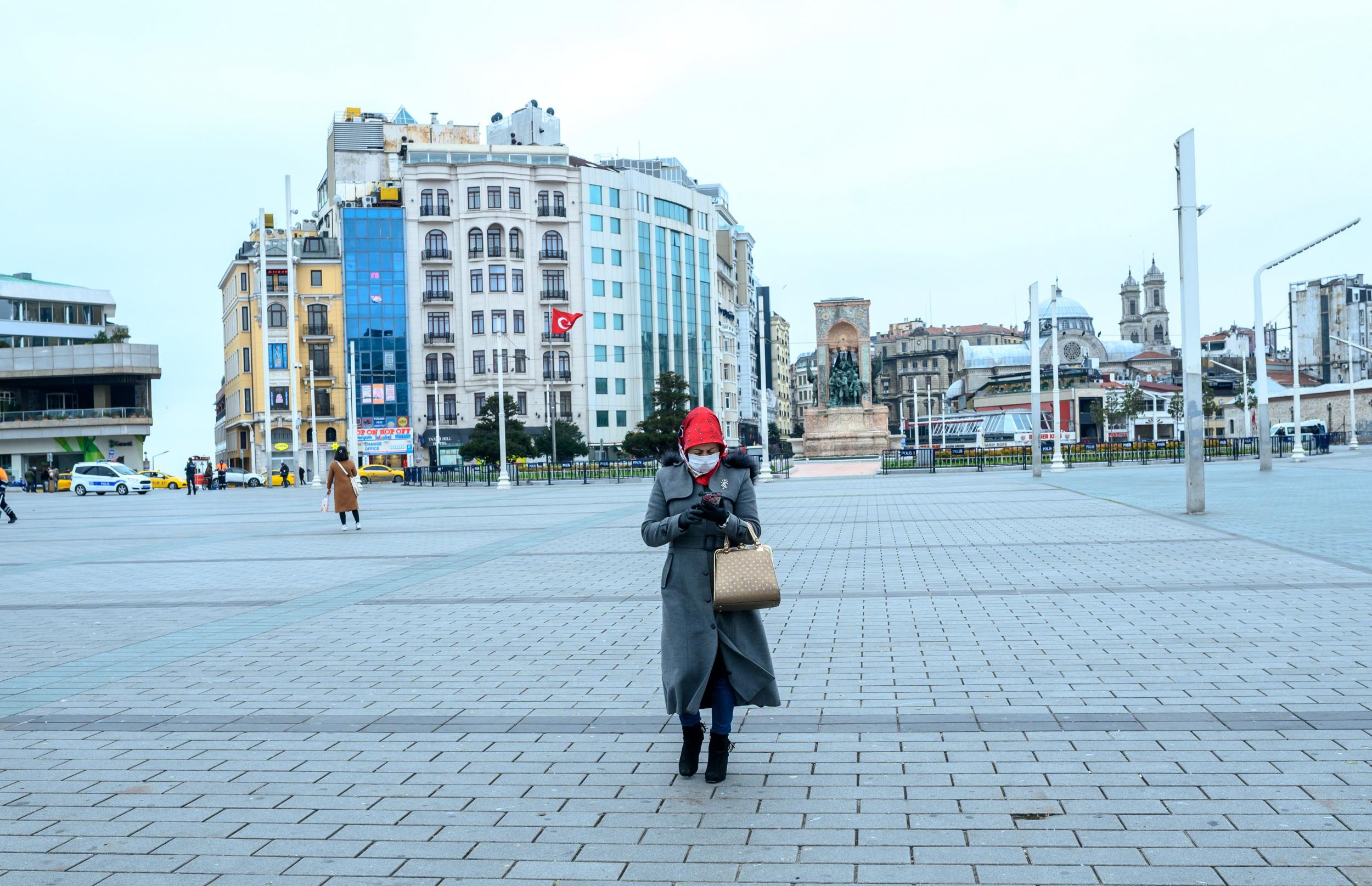A decline in the number of murdered women in Turkey looks like good news, but the wider picture is very troubling
There has been a 44% rise in the number of women’s enquiries for help and assistance during the month of April, when the population was under lockdown, writes Sebnem Arsu in Istanbul


Turkey, just like every other country these days, is pining for good news.
A recent interior ministry statement announcing a 45 per cent decline in female homicides during the pandemic surely could count as one, only if you turned a blind eye to incidents of violence that didn’t end with murder.
Comparing March statistics of the past two years, the ministry underlined special training provided to police officers, military cadets used in the fight against domestic violence, as well as a surge in numbers of referential offices throughout Turkey as reasons behind the shrinking cases.
Women’s rights activists, however, question why officials are highlighting early gains when they have failed to adopt measures for protecting women trapped in isolation with their aggressor during Covid-19.
The We Will Stop Femicide platform, which has become an umbrella group for female activists throughout Turkey, recorded a comparative 44 per cent rise in women’s enquiries for help and assistance during the month of April, when the population was under lockdown.
“In Turkey, where women already face multi-faceted threats, we would have expected officials to step up TV campaigns while everyone is watching TV at home and use all possible channels to introduce helplines, warn against domestic abuse during the pandemic,” said Gulsum Sav, the spokesperson of the platform.
“Instead, they issue statements that potentially create a false sense of normality when we are light years behind it.”
The same hike the platform registered was reflected in a recent public survey by the Socio-Political Social Research Centre based in Diyarbakir, south eastern Turkey.
Their poll spanned 28 cities throughout the country and concluded that, since Covid-19, there was a 27.8 per cent increase in violence against women by their husbands, fathers, brothers, mothers, sisters, boyfriends, relatives or acquaintances and sons, respectively.
Turkey has been shut down since 16 March with a strict ban on travel in or out of the country, followed by rigorous public calls for self-isolation and weekend curfews to repress interaction in an emerging springtime.
For over a month now, no one younger than 20 or older than 65 can leave home while only essential businesses like pharmacies, bakeries and supermarkets remain open.
“Under today’s extraordinary circumstances, we are trying to make sure that all our social services, including face-to-face assistance for disturbed families, are delivered without interruptions in online platforms,” said a spokesperson for the Ministry of Family, Labour and Social Services, as he denied claims about a surge in domestic violence complaints.
Instead, violence-related calls made by women to the public helpline decreased by 4 per cent on a daily basis since 11 March through 30 April, compared with the period between 1 January and 11 March, before the pandemic, he added.
According to savvy women’s rights activists, however, statistics on domestic violence required a far more insightful reading.
“The majority of women face violence or get killed when they start legal procedures to break away from their aggressors but now, they mostly call to talk and prefer to delay legal action in fear of the deadly virus floating outside their homes,” said Melek Onder, an activist in charge of the platform’s helpline.
“They are not only concerned about their own but also partners’ health, let alone the lack of privacy at home to make such a confidential phone call, so we have to wait to see the real impact of pandemic once it ends.”
Given such nuanced discrepancies in measured data, it is hard to see any positive decline as improvement especially after 2019 saw 474 femicides – the highest in the last ten years.
Despite all awareness campaigns, cultural codes in Turkey’s male-dominated society continued to challenge laws against the discrimination of women while religiously oriented circles raised their objections to gender equality.
Notwithstanding the challenges to redefine women as individuals rather than solely mother, sister, wife or daughter in Turkey’s predominantly conservative society, it appears equally hard to enforce implementation of already existing laws that protect women.
Should police and other forces persistently follow Article 6284 of the criminal code, which prohibits violence against women, dozens would still be alive.
Turkish media archives are full of stories of women who have been shot dead, stabbed or injured in ways beyond treatment or comprehension after their official complaints were either shelved or treated inadequately by the police.
Are all these complaints even getting registered by the system? It’s hard to tell.
Two weeks ago, 44-year-old Gamze Pala was shot with a fire gun then stabbed to death by her long-time abuser. She had been to the police several times, an unidentified acquaintance insisted in a news report. According to the family ministry, there are no such records.
Activists I spoke to welcome efforts to right this wrong under the auspices of the family ministry led by Zehra Zumrut Selcuk, a female minister, including a “panic” smart phone application that has so far been downloaded by 437,272 people.
Activists are still calling for immediate measures to protect women, now that there’s an unprecedented chance to reach out to the nation to combat against domestic violence.
“When the pandemic hit Europe, we heard presidents, ministers, community leaders, mayors taking the stage to make public statements against domestic violence as loud as possible,” said Gulsum Sav.
“There has not been a single statement from any minister here when their dedicated appearance to stop abuse would have spoken louder than any well-worded poster on a wall. We are left alone again.”
Join our commenting forum
Join thought-provoking conversations, follow other Independent readers and see their replies
Comments